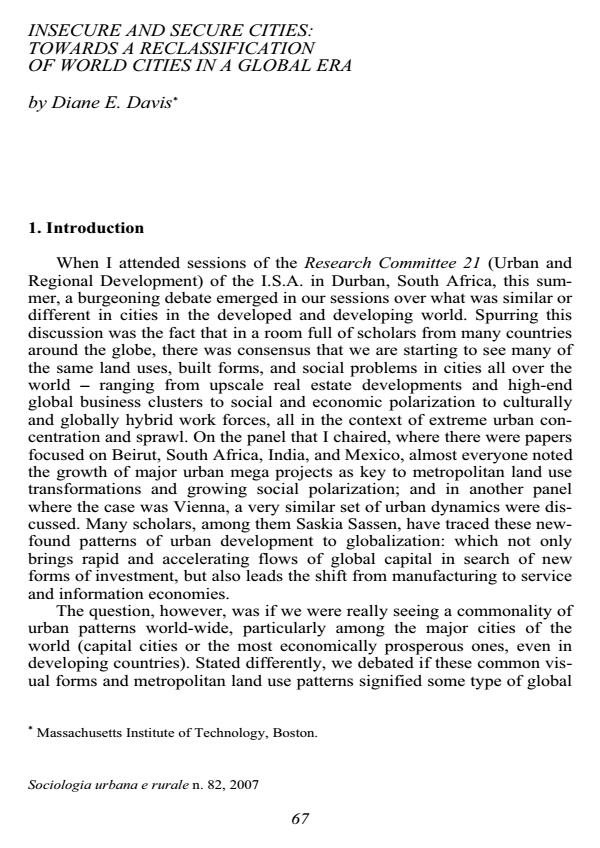Insecure and Secure Cities: towards a reclassification of world cities in a Global Era
Titolo Rivista SOCIOLOGIA URBANA E RURALE
Autori/Curatori Diane E. Davis
Anno di pubblicazione 2007 Fascicolo 2007/82
Lingua Italiano Numero pagine 15 P. 67-81 Dimensione file 71 KB
DOI
Il DOI è il codice a barre della proprietà intellettuale: per saperne di più
clicca qui
Qui sotto puoi vedere in anteprima la prima pagina di questo articolo.
Se questo articolo ti interessa, lo puoi acquistare (e scaricare in formato pdf) seguendo le facili indicazioni per acquistare il download credit. Acquista Download Credits per scaricare questo Articolo in formato PDF

FrancoAngeli è membro della Publishers International Linking Association, Inc (PILA)associazione indipendente e non profit per facilitare (attraverso i servizi tecnologici implementati da CrossRef.org) l’accesso degli studiosi ai contenuti digitali nelle pubblicazioni professionali e scientifiche
This paper focuses on the following question: what, if anything, makes contemporary world cities different from each other? Starting from some sessions of Research Committee 21 (Urban and Regional Development) of I.S.A. in Durban, the author suggests that a key-feature to distinguishing world cities is the acceleration of public insecurity and a deteriorating rule of law, as well the resultant social, spatial, and economic fragmentation these changes engender. So, planners, architects, and sociologists must be prepared to think about how to make or keep cities secure, without resorting only to “privatized” efforts to guarantee security. A possible solution is the creation of public spaces open to all classes and cultures, emphasizing social and economic integration. Moreover, policies for balanced urban employment patterns and alternative land uses are necessary to prevent social and spatial polarization of urban life, and compartmentalization of space and economy into high and low-end activities.
Diane E. Davis, Insecure and Secure Cities: towards a reclassification of world cities in a Global Era in "SOCIOLOGIA URBANA E RURALE" 82/2007, pp 67-81, DOI: